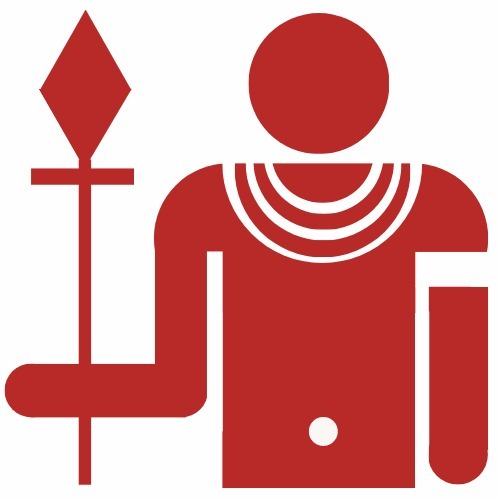
Kiva Zip Kenya 2014 perspective from Program Manager, Akash Trivedi:
Nearly 2.5 billion people in the world today are financially excluded. 80% of them – nearly 2 billion individuals – live on less than $2 a day; and of these, only 25% have been afforded the opportunity to save money at a formal or semi-formal financial institution (e.g. Banks and Microfinance Institutions).
In Kenya alone, 60% of the adult population does not have access to traditional forms of financing – forced instead to rely on exorbitantly priced money lenders and/or local community savings groups, which don’t always offer the most flexibility in terms of liquidity.
While Microfinance Institutions (MFIs) like Faulu, Kadet, and K-REP and banks like Equity continue to (courageously) push the boundaries of financial inclusion outward, the fact remains that many of these entities, by virtue of their business models, will nevertheless fall short of serving the most excluded and underserved populations. Not because of a lack of “want to” but because as for profit organizations trying to keep themselves out of the red, they can ill afford to take risks on entrepreneurs that live in remote communities, have health issues, are under the age of 25, or have startup businesses.
With Kiva Zip, a new web-based not-for-profit direct lending platform that combines crowdfunding and mobile payment technology we aim to change this, and in so doing extend the reach of microcredit farther than ever before.
For starters, when a borrower posts their picture, story, and loan request to our website, they are not funded by a bank or an MFI but by ordinary people from all over the world contributing as little as $5 and seeking no return other than meaningful human connection – which is to say all of our loans are genuinely 0% interest and genuinely affordable.
Secondly, by using M-PESA to send money directly to borrowers via their mobile phone, we’re able to connect to thousands of individuals without multiple physical locations – even if they live in far off places like Mfangano Island in Lake Victoria.
One trustee in particular that underscores the inherent value and potential of social underwriting is Youth Banner (TYB). Youth Banner, as the name would suggest, is not an MFI or a bank; it doesn’t have credit officers, doesn’t have experience managing credit risk, and before Kiva Zip had never given out loans. But it is an exceptional organization whose sole mission is to empower young people through entrepreneurship. Case in point, each of TYB’s kids must commit to a rigorous three-step program before they join – an intense 3 month business mentorship and training course, the formal registration of a viable business, and lastly regular check-ins and 1:1 coaching sessions once their business is up and running. By the time they’re done, these young entrepreneurs have developed a lasting and intimate relationship TYB and its team. Who better than Youth Banner then to assess which of these young entrepreneurs will be able to take full advantage of a small 0% interest business loan and have the moral fiber to pay back? A bank?

If there’s one thing we’ve learned since we launched in late 2011 it is that when you can identify the right people for a loan, impact is sure to follow. Take Yohannes for example. Yohannes is a refugee from Ethiopia. He has been living in Kenya since 2011, has all his proper documentation and by every definition of the word – I’ve personally met him – is a gem of a human being; however given his social standing, he would have never have qualified for credit on his own. In fact, had it not been for his trustee RefugePoint’s unwavering belief in his worth as a person and as an entrepreneur, he would likely still be scraping by selling secondhand shoes and eating 1 meal a day. But after completing his second Zip loan he is now selling brand new football jerseys, significantly increasing his business; he is eating three full meals a day; and he has even taught himself how to use the internet. Not only that, he has so much more self-confidence. He has registered for multiple marathons, and has mentioned on more than one occasion that he would very much like to become a trustee one day so that he too, can help people in his community. Neither of which, he would have been possible 18 months ago.
In so many ways, Yohannes is symbolic of the Kiva Zip story. In a little over 2 and half years, our small little program has made over 2000 loans year in Kenya through approximately 160 trustee partners – surpassing even our wildest dreams. But the thing is we’re just now beginning to figure out what’s possible. While we won’t be running marathons any time soon, if what we’ve seen in the past several months is any indication, we’re on the verge of creating something special. Imagine a future where leaders from all walks of life and sectors come together to form an exclusive community whose sole purpose is to help one another galvanize aspiring entrepreneurs; imagine a future where these entrepreneurs can connect with one another and lenders all over the world, sharing information and forging bonds that will enable them to grow their business and secure their dignity; and imagine a future where after lifting themselves up, these entrepreneurs can pay it forward by endorsing/lending to other hardworking individuals in their own social network. It might sound farfetched but I can assure you, it’s not.

If you are an aspiring entrepreneur or know of one who deserves a hand up, join us. Together, I believe we can go far.
To learn more please visit www.zip.kiva.org



